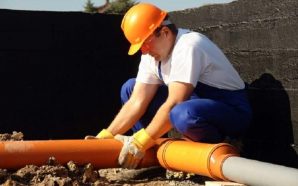Plumbing services are indispensable for maintaining the integrity and functionality of residential and commercial properties. However, the pricing structure of plumbing services can often be a mystery to consumers. Understanding the various factors that influence plumbing service pricing can empower consumers to make informed decisions and effectively manage their plumbing budgets.
Complexity of the Job:
One of the primary factors influencing plumbing service pricing is the complexity of the job at hand. Simple tasks such as fixing a leaking faucet or unclogging a drain typically require less time and resources compared to complex projects like re-piping an entire building or installing a new plumbing system. The more intricate the task, the higher the associated costs.
Materials and Equipment:
The quality of materials and equipment used during plumbing repairs or installations directly impacts pricing. While opting for cheaper materials may seem cost-effective initially, they may result in frequent repairs or replacements in the future, ultimately costing more in the long run. High-quality materials and specialized equipment may command a higher price but offer greater reliability and longevity.
Labor Charges:
The labor component of plumbing services is a significant factor in determining pricing. Plumbers often charge an hourly rate or a flat fee for their services, which can vary based on factors such as experience, expertise, and geographical location. Additionally, emergency or after-hours services typically incur higher labor charges due to the immediate response required.
Time and Scheduling:
The timing of the service request can also influence pricing. Scheduled appointments during regular business hours generally come with standard rates, while emergency services outside of regular hours may incur additional charges. Plumbers may also prioritize urgent requests, which can affect availability and pricing.
Geographical Location:
The location of the property plays a crucial role in plumbing service pricing. Areas with higher costs of living or greater demand for plumbing services may have higher service rates. Additionally, accessibility issues, such as working in older buildings or tight spaces, can impact pricing.
Extent of Damage or Repair:
The severity of the plumbing issue directly affects the cost of services. Minor repairs, such as fixing a leaky pipe may be relatively inexpensive, while major issues like sewer line replacements or water heater installations can be more costly. Plumbers typically assess the extent of damage before providing an estimate.
Additional Fees and Taxes:
Consumers should be aware of any additional fees or taxes that may be included in the final bill for plumbing services. These can include travel fees, permit costs for certain installations, disposal fees for old fixtures or materials, and applicable sales tax.
In Summary
Plumbing service pricing is influenced by various factors, including the complexity of the job, materials and equipment used, labor charges, timing and scheduling, geographical location, extent of damage or repair, and additional fees and taxes. By understanding these factors, consumers can navigate the pricing landscape more effectively and ensure they receive fair and transparent pricing for their plumbing needs.









